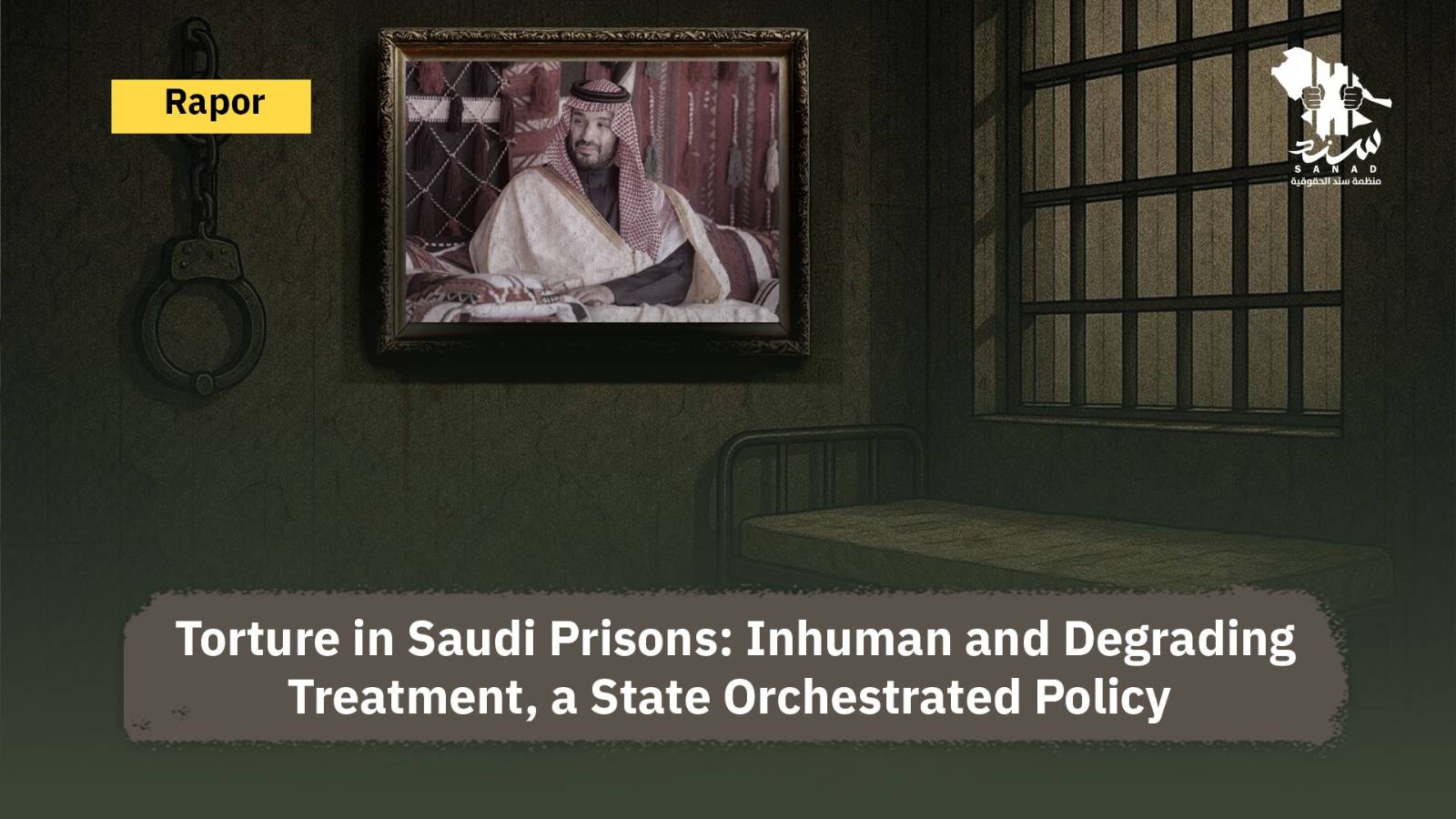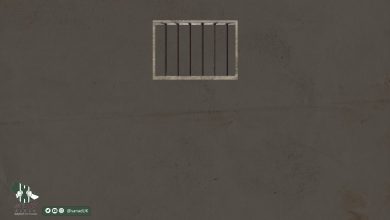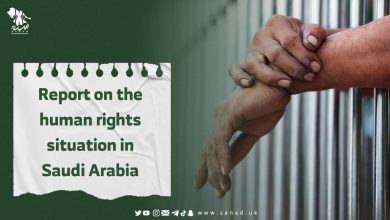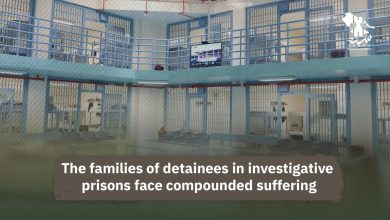
Torture in Saudi Prisons: Inhuman and Degrading Treatment, a State Orchestrated Policy.
On the International Day in Support of Victims of Torture, observed annually on June 26, SANAD Human Rights Organisation reaffirms that the Saudi authorities continue to engage in torture in all its forms against detainees inside prisons. SANAD urgently calls on the international community and all people of conscience around the world to pressure the Saudi government to end its systematic use of torture and its gross violations of human rights in prisons and detention centers.
SANAD emphasizes that torture in the Kingdom is not the result of isolated misconduct, but rather a deliberate and institutionalized state policy. This policy specifically targets prisoners of conscience and human rights defenders and is implemented through the government’s security services and judicial system.
Testimonies and reports documented by SANAD reveal that Saudi prisons have become horrific environments for physical and psychological torture amid the absence of judicial and human rights oversight, lack of transparency, and collusion between prison authorities and perpetrators. Sanad has for years documented repeated cases of severe beatings, electric shocks, suspension by limbs, sleep deprivation, and psychological and sexual humiliation of both male and female detainees.
Among the most egregious documented cases is that of Dr. Ali Al-Omari, who has been detained since September 2017 and subjected to severe torture, including repeated electric shocks and the extinguishing of cigarettes on his body, leading to widespread burns, internal infections, and eventually kidney failure. Lawyer Mutib Dhafer Al-Omari also endured electric shocks and a series of systematic violations while in detention. Female detainees have not been spared; Sanad has documented cases of sexual harassment intended to psychologically break them.
Other torture methods include suspension by arms or legs for long periods to physically exhaust detainees. Sanad documented the use of this method against Dr. Khaled Al-Rashed as part of a broader pattern of systematic torture. Medical neglect is also used as a lethal tool, with many prisoners denied necessary medical care, leading to the death of detainee Dr. Qassem Al-Qathrdi this year due to deliberate medical negligence.
Sleep deprivation is another common tool used in Saudi prisons. Detainees are kept awake through constant interruptions or intense lighting, causing severe psychological and physical harm. This tactic has been used against the sons of Dr. Safar Al-Hawali, as documented by Sanad. Many detainees are also subjected to constant verbal abuse, insults, and long-term solitary confinement, leading to deteriorating mental health. Since their arrests in September 2017, Dr. Awad Al-Qarni and Dr. Salman Al-Ouda have been held in solitary confinement, severely impacting their well-being.
SANAD has also recorded other methods of abuse, including shackling hands and feet, beatings in sensitive areas, dragging detainees with chains, and placing political prisoners alongside individuals with severe mental illnesses as happened with human rights activist Dr. Mohammad Al-Qahtani, who was only recently released after more than 10 years of imprisonment.
Sanad underscores that torture is a crime that does not expire and that impunity for its perpetrators poses a serious threat to justice. It represents a blatant violation of international treaties signed by Saudi Arabia, including the UN Convention Against Torture. The organization demands independent and transparent investigations and that those responsible for these crimes—ranging from the direct perpetrators to security services and decision-makers—be brought to justice.
SANAD also calls for independent human rights organizations and international observers to be granted access to Saudi prisons to directly examine detainees’ conditions and ensure their legal rights and access to proper medical and psychological care.
SANAD emphasises that eradicating torture in Saudi Arabia will not be possible without genuine international pressure and global solidarity with victims of this egregious violation of human dignity.
SANAD reiterates its full commitment to supporting victims of torture, documenting their suffering, holding perpetrators accountable, and ending the systematic use of torture in the Kingdom in pursuit of justice and in response to the cries of detainees behind bars.






